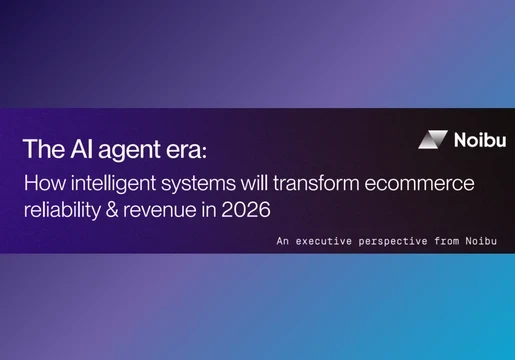In today's digital age, communication has become a crucial aspect of business operations. From internal team communication to customer engagement, effective communication plays a vital role in ensuring business success. Traditional communication methods like phone calls and emails are gradually becoming outdated, and businesses are now looking for more efficient and cost-effective ways to communicate.
This is where cloud communication comes in. Cloud communication is a technology that uses the internet to transmit voice, data, and video communication. It eliminates the need for on-premise hardware and allows businesses to connect with anyone, anywhere, and at any time. In this blog post, we will discuss the power of cloud communication and how it can enhance collaboration and connectivity.

What is Cloud Communication?
Cloud communication, also known as cloud-based communication, is a technology that uses the internet to transmit voice, data, and video communication. It eliminates the need for on-premise hardware and allows businesses to connect with anyone, anywhere, and at any time. Cloud communication services include voice over internet protocol (VoIP), unified communications as a service (UCaaS), and video conferencing.
Cloud communication services are hosted by third-party providers and accessed via the internet. This means that businesses can access these services from anywhere, as long as they have an internet connection. Cloud communication services are also scalable, meaning that businesses can easily add or remove users as needed, without having to invest in additional hardware.
Enhancing Collaboration
Collaboration is essential for business success, and cloud communication can enhance collaboration in several ways. Firstly, cloud communication services allow teams to communicate in real-time, regardless of their location. This means that remote teams can collaborate just as effectively as on-site teams, without having to worry about geographic barriers.
Secondly, cloud communication services offer a range of collaboration tools, such as instant messaging, video conferencing, and screen sharing. These tools allow teams to work together in real-time and share information seamlessly. For example, a team member can share their screen during a video conference to demonstrate a new product or service, or multiple team members can collaborate on a document in real-time.
Thirdly, cloud communication services offer integration with other collaboration tools, such as project management software and customer relationship management (CRM) systems. This means that teams can access all the tools they need from a single platform, making collaboration more efficient and streamlined.
Improving Connectivity
Connectivity is also essential for business success, and cloud communication can improve connectivity in several ways. Firstly, cloud communication services offer reliable and high-quality communication. This means that businesses can communicate with their customers and partners without having to worry about call drops or poor call quality.
Secondly, cloud communication services offer flexibility in terms of device and location. Employees can use their preferred device, whether it's a laptop, tablet, or smartphone, to access communication services. This means that employees can work from anywhere, which is particularly important in today's remote work environment.
Thirdly, cloud communication services offer cost savings. Traditional communication methods, such as phone lines, can be expensive, especially for businesses that have multiple locations. Cloud communication services, on the other hand, are typically offered on a subscription basis, which means that businesses can save money on their communication costs.
Challenges of Cloud Communication
While cloud communication offers many benefits, it also comes with some challenges. One of the main challenges is security. Cloud communication services are hosted by third-party providers, which means that businesses need to trust these providers to keep their data secure. Businesses need to ensure that their cloud communication provider has adequate security measures in place, such as encryption and access controls.
Another challenge is internet connectivity. Cloud communication services rely on internet connectivity, which means that businesses need to ensure that their internet connection is reliable and high-speed. Poor internet connectivity can result in call drops, poor call quality, and other communication issues.
Conclusion
Cloud communication is a powerful technology that can enhance collaboration and connectivity for businesses of all sizes. By leveraging cloud communication services, businesses can communicate with anyone, anywhere, and at any time, and access a range of collaboration tools and integration options.
While cloud communication does come with some challenges, these can be mitigated by choosing a reliable and secure provider and ensuring that the internet connection is robust. Cloud communication is the future of business communication, and businesses that embrace this technology will be well-positioned for success.
IoT Tech Expo North America will bring together some of the brightest minds in the Internet of Things industry, featuring keynote speeches from renowned industry leaders and interactive sessions exploring the latest advancements in technology. Attendees will have the opportunity to engage in insightful discussions and network with like-minded professionals.

IoT Tech Expo North America will bring together some of the brightest minds in the Internet of Things industry, featuring keynote speeches from renowned industry leaders and interactive sessions exploring the latest advancements in technology.
Taking place at Santa Clara Convention Center in Santa Clara, California from May 17 to May 18, 2023, the event offers a variety of presentations and panel discussions, led by industry experts and thought leaders.
The sessions will cover a range of topics, from Digital Twins and IoT Security to Smart Infrastructures & Automation, Data & Analytics and Edge Platforms. Attendees will gain valuable insights and practical knowledge that they can apply to their own businesses.
The conference will also feature a dynamic exhibition floor showcasing cutting-edge technologies and innovations from leading companies in the IoT field.







Comments ( 0 )